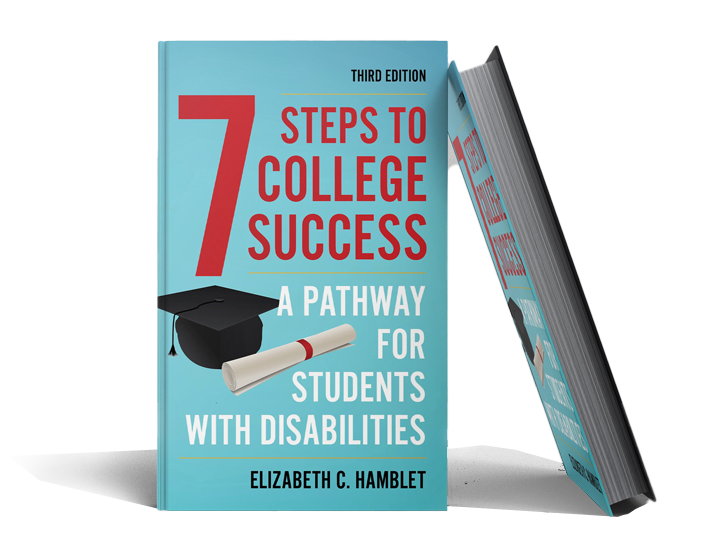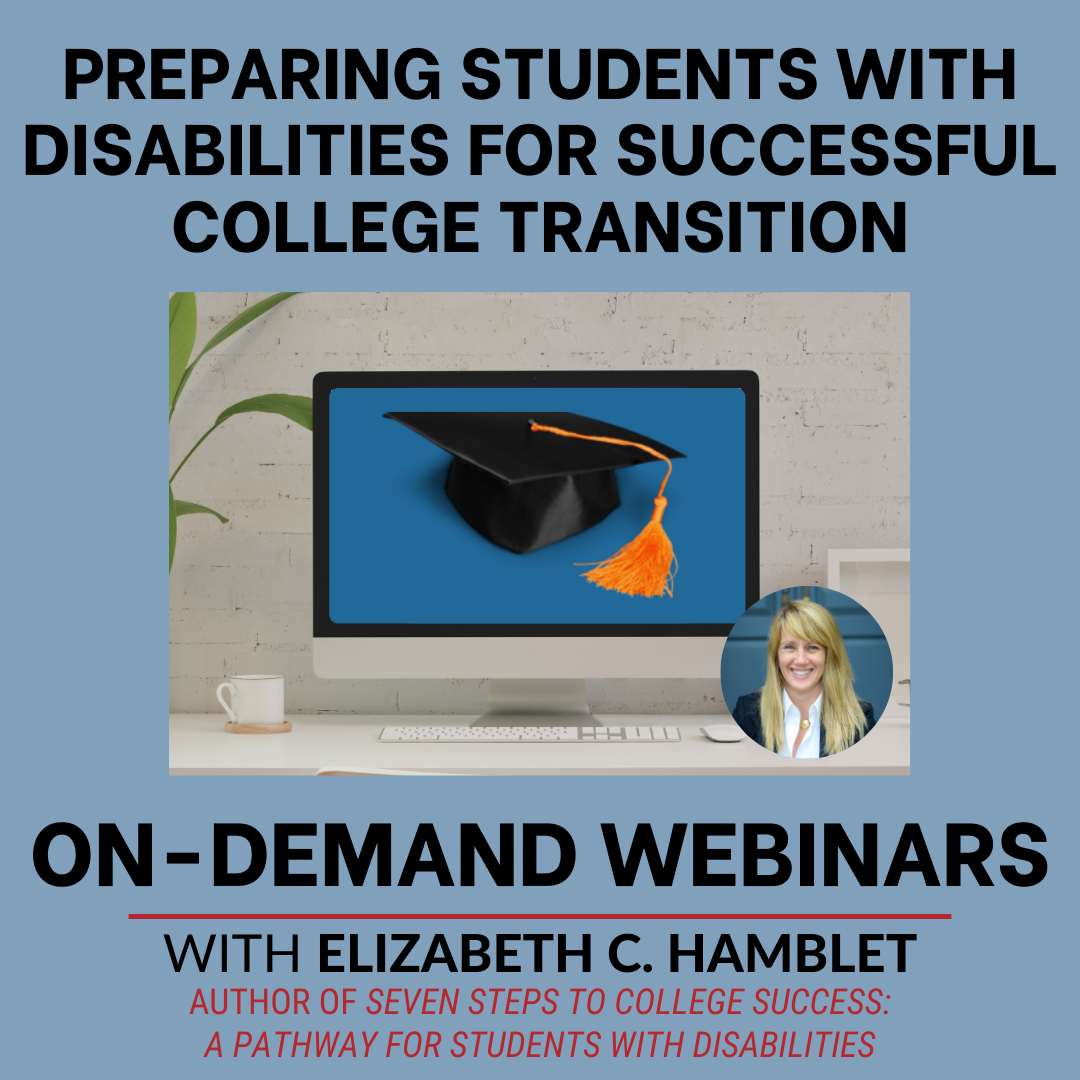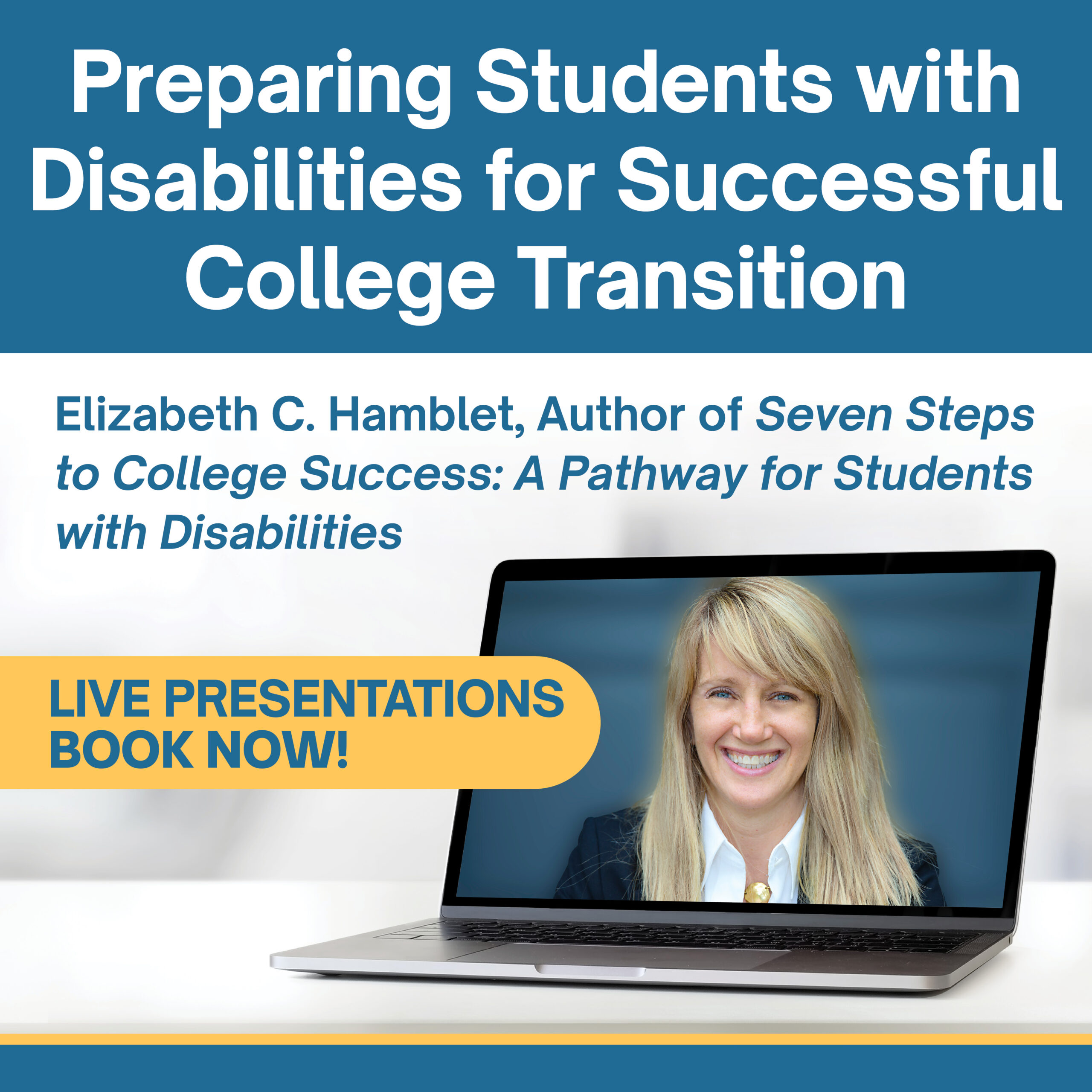Introduction
I know that students with disabilities and their families hear a lot of things about the college admissions process that worry them. So much what they hear is untrue. (Read my responses to other admissions myths.) I’ll answer some FAQs to dispel this myth and offer advice about contacting colleges’ disability services (DS) offices.
Throughout this discussion, you’ll see references to sections of my book where you can learn more about these topics.
Is it true that students should avoid contacting DS at the colleges that interest them because DS will contact Admissions, who’ll put them on a list to be rejected when they eventually apply?
This is one of the most damaging and nonsensical myths I hear. I’m assuming that people who advise students against contacting DS before they’re accepted assume that colleges wish to exclude students with disabilities. Anyone who says this is reflecting their own bias, i.e., they think that colleges view students with disabilities as undesirable.
Bottom line – the admissions deans I interviewed for my book said the idea that they screen out students with disabilities is nonsense. Read Step 6 to see what they said about disclosure in the admissions process, what information they get from high schools, and how they view it.
Also – for those who’ve heard this myth – students who’ve been admitted to a college shouldn’t worry about contacting DS, either before they decide to enroll or after they do. In 25 years’ work, I’ve not heard of a single student who had their college admission rescinded, or canceled, because they talked to DS.
Knowing this, students should feel comfortable asking DS anything they want.
Why would students want to contact DS at the colleges on their list?
Some students want to ask questions about what accomodations DS offices at the colleges on their list commonly approve, get a sense of the people who work in the office, ask about other resources on campus, etc. They should be assured that the DS directors I interviewed for my book stated emphatically that they want students to ask questions. It’s important that a school be a good fit in every facet of a student’s experience. (Read Step 5.)
This said, a number of students who use the kinds of accommodations that are widely available everywhere likely won’t feel that way. And given that most of the communication they’ll have with DS will be electronic (e.g., emails, messages in an online system), it may not seem important to connect with the staff at these offices.
If they’re not sure what they would request, they may want to complete my free accommodation request preparation form to help them make a list.
What should students ask if they contact DS offices?
That’s up to the student. What do they want to know? They can prepare a list of questions ahead of time.
It would probably students to preview colleges’ DS site to get a sense of what information is available already (This is a good lesson in “adulting.”) If the site doesn’t have such a list, look at the one provided by Rutgers University. Looking at the site might also spark questions for them, e.g., if there is a learning specialist they can meet with through DS, how often can they see that person?
I offer a post with suggestions for what to look at, a free form to guide students in exploring DS sites, and a video demonstrating how to do this research. If they have additional questions after viewing a site, they may want to contact the DS office they’re exploring.
Can a student ask DS what accommodations they’ll get if they attend that college?
It would be ideal if students could find out what accommodations a college would approve. This would give them information to help them make a decision once their acceptances come in.
(Not all accommodations students get in high school are available at the college level. For more information, read Step 7 of my book and/or watch my on-demand webinar on this topic.)
Unfortunately, many colleges don’t have enough staff to review the documentation and requests of a student who hasn’t been accepted yet and tell them what they would be approved for if they attended. Students can always ask (some offices might say yes) but students should not be turned off if DS can’t do it. They need their staff to attend to the needs of their current students – which is what students will want them to do if they attend that college.
Are students better off emailing or calling DS with their questions?
Students should know that some offices have only one staff person. The DS website may have a form students can fill out and/or provide an email address or phone number to contact them.
Students may get all they need from an email. If they want to talk to a DS staffer instead, though, they should expect that when they first try calling, the staffer may want to set up a time to talk, as they simply may not be able to drop what they’re doing at that moment.
Can students meet with DS while they’re visiting a college?
Some students want to see the DS office while visiting a campus. (See my suggestions for college visits and tours in Step 5.) They can drop by if they wish just to get a sense of the general office environment, but if they want to meet with someone there, they’ll likely have to make an appointment in advance. (Again, these folks are busy helping students already enrolled.)
If they take the time to meet with students in person, will DS talk to Admissions about them?
To put it plainly – no, they won’t contact Admission to give their impression of the student. This meeting is only for students’ own purposes.
Can/should parents contact DS to help their student out with their research?
Parents/guardians certainly can help, but as I suggest in Step 5, I think it’s a missed opportunity if your student doesn’t do any of this research. Again, it’s their chance to get a “vibe,” it’s a chance to develop important skills, and it’s also good practice for the process of registering with the DS office wherever they eventually attend. That said, I know loving parents/guardians want to help. In Step 5 of my book, I suggest a way to divide up this responsibility and use it as a chance to teach students some adult skills.




